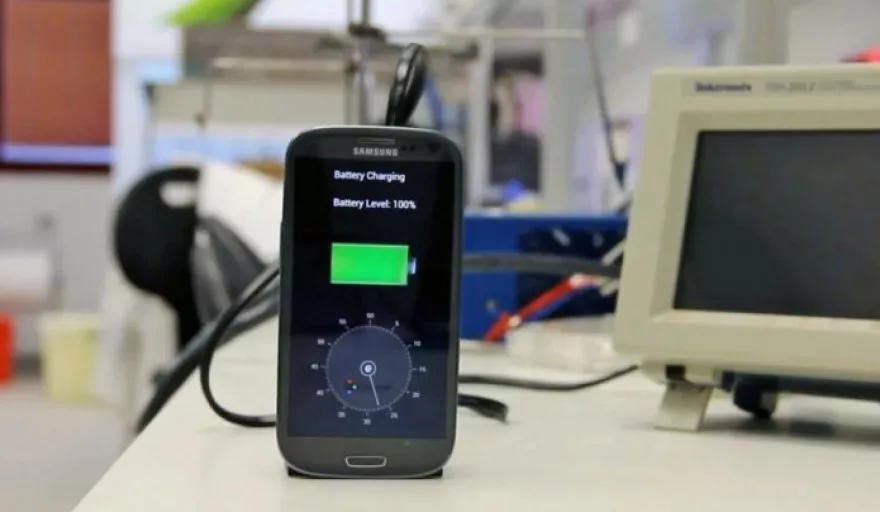A battery that can charge in under 30 seconds has been shown off at a technology conference in Tel Aviv, which has been the talking point of many news sites this week.
StoreDot, an Israeli start-up, displayed the device at Microsoft’s Think Next Conference. The battery, made of biological structures, powered up a Samsung S4 Smartphone from completely dead to full power in 26 seconds in the demonstration. The battery is currently a prototype and StoreDot predict it will take three years to become commercially viable. The demonstration battery was about the size of a cigarette packet, attached to the back of the phone.
“We think we can integrate a battery into a Smartphone within a year and have a commercially ready device in three years,” founder Dr Dorn Myersdorf told the BBC.
The bio-organic battery utilises tiny self-assembling nano-crystals that were first identified in research being done into Alzheimer’s disease at Tel Aviv University ten years ago. The nano-dots are described by StoreDot as “stable, robust spheres” that are 2.1 nanometres in diameter and made up of peptide molecules and has a range of uses, Dr Myersdorf said.
“Batteries are just one of the industries we can disrupt with this new material. It is new physics, new chemistry and a new approach to devices,” he stated.
The team has also used the nano-crystals in memory chips which could write three times faster than traditional flash memory and is a non-toxic alternative to cadmium in screens. The batteries are likely to be 30 to 40 per cent more expensive to manufacture compared to traditional products, meaning the final product will be twice as expensive as those on the market today. However, manufacturing and making the batteries should be an easy process.
This being said, we have to remember that the majority of ground-breaking technology eventually progresses into the mainstream market, lowering in price and becoming the standard in due course. “It is about letting nature take its course. We just need a facility that can do chemical processing,” Dr Myersdorf concluded.



































